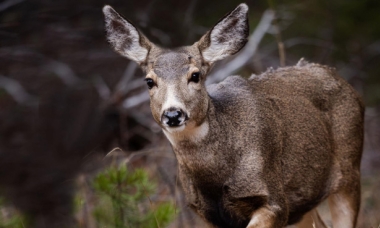Summary
The needs of humans and the needs of the wildlife that surround us are intensifying. Habitat loss and fragmentation due to human development keep wildlife from finding food, water and shelter. These factors also make adhering to daily, seasonal and life history needs extra challenging and inhibit migratory movements, like moving to and from foraging areas and breeding sites. Dr. Rachel Wheat led the Oregon Connectivity Assessment and Mapping Project, an effort to better understand wildlife connectivity in Oregon. The Project identified Priority Wildlife Connectivity Areas in Oregon, representing the highest-value parts of the landscape for facilitating wildlife movement. This information will better inform Oregonians about the needs of wildlife even as we go about fulfilling our own needs. Dr. Wheat talked to Tim Akimoff and Beth Quillian about the project for this week's Beaver State Podcast.

